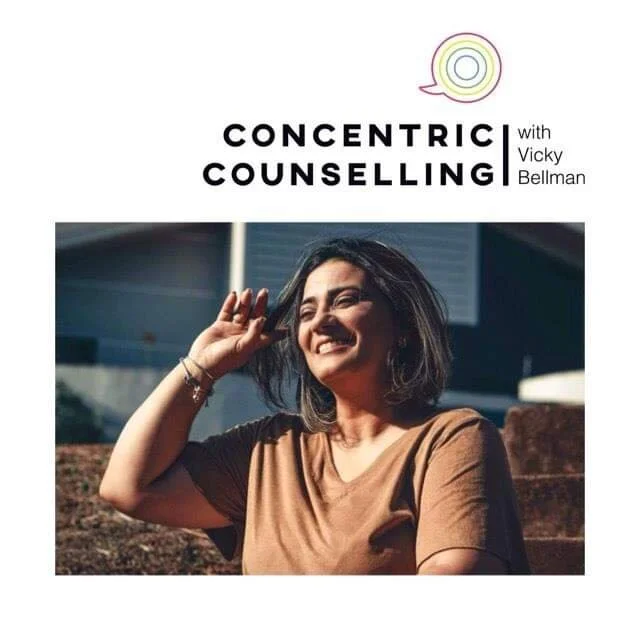Nurturing emotional health in young boys
In a recent blog post, I spoke about the social restrictions that are placed on men, and their expression of gender, and how these limitations so often mean that men feel unable to talk about their feelings. When people are unable to talk freely about the emotions, and unable to ask for help, their mental health suffers. As Princes William and Harry said, so much of breaking the stigma comes from talking about male mental health, and publicly acknowledging the value of expressing our emotions and sharing our emotional experiences with each other. But that can't just suddenly happen and, often, with a limited emotional toolkit, men are at a bit of a loss where to start. Great change is possible in our adulthood, as we grow in awareness, but it can be difficult and challenging. Far better, where possible, to build stronger emotional foundations to begin with.
Our emotional identities begin to form in our early childhood and, from the same age, boys and girls are treated differently and socialised to behave in different ways. Gender identity and gender expression are both upheld by social conventions and, whilst some cliches may seem outdated, most cultures still sign off on the idea that boys and girls should behave in certain ways. My own practice is informed by the notion that men and women both have the same range of emotions available to them, but that we learn very early on which emotions our culture is comfortable with us expressing. In very simple terms, girls and women are still not as encouraged to express anger, and therefore not as practiced in expressing anger in an emotionally healthy way; boys and men are not as encouraged to express fear or sadness, and therefore not as practiced in expressing fear or sadness in an emotionally healthy way. However, restricting our access to full emotional expression won't make these emotions go away, and often leaves us feeling dissatisfied.
From early on, small boys will internalise pervasive and reinforced messages of what it is to 'be a man'. As I touched on in my previous post, we can all bring to mind the characteristics of the myth of the 'real man'; focused on physical strength, informed by the doctrines of 'boys don't cry', 'man up' and 'suck it up'. Whilst many of us now reject those messages, and wouldn't explicitly pass them down to our children, they will still have access to these tenets through mainstream media, peers and other adults. We don't want to parent our children in bubbles, or cut off their contact with the wider world but, within our own homes and families, we can do our bit to redress the balance. And, whilst this post is directed mainly at young boys, as an addition to my previous post about male mental health, these tips, of course, work for other genders as well!
Encourage full emotional expression
Praise and make time for emotional expression, particularly for the expression of challenging emotions. Boys are not encouraged to express their emotions, so making time in the day to ask how they are, and how they're feeling, is important. Make sure to leave time to deal with their full response - processing big emotions can take time and requires patience, so give yourself a good amount of quality time together to facilitate these important conversations.
Notice positive expressions of male emotional expressions in books, TV, and in their own play and artwork. In a world that teaches boys that they shouldn't cry, it can be powerful to give children permission to expression emotion by validating and accepting the emotional expression of others eg showing empathy for a man looking sad or crying in a cartoon or TV programme, or a little boy in the park, or a grown man within the family.
With older children, call out negative emotional expressions in news, and discuss these messages when you have the opportunity. Something as simple as walking past a stack of t shirts with gendered slogans on them, can be the jumping off point for why you think this is unconstructive, and also gives your child the opportunity to form and express their own opinion on the subject.
Be mindful of your language when talking to little ones about emotions, and particularly to little boys, who will already be battling social restrictions on the free expression of their emotions. Even a well intentioned and throwaway comment such as 'don't be silly' when a little boy is crying, begins to form the link that crying is silly. The language we use to our children is powerful, and paying a little attention to the phrases we use, often without thought, is an excellent starting point when engaging with our children.
Actively seek out books and media that challenge rigid gender roles. Take a look at the books you own - do they show men and women in traditional gender roles, or do they show a wide range of gender expression and emotional expression? (spoiler: fairytales are some of the worst offenders!). Of course, classics and old favourites still have a place on the bookshelf but the can also be used as conversation starters about gender roles and expression. One really fun way to do this with younger children is to reverse the genders of well known tales and see how silly and restrictive they then seem. And, of course, if you would like to redress the balance, have a hunt for some alternatives.
Encourage socialisation
We heal in connection with others, and we always have. But, for men and boys, one of the most strongly held myths is that they are supposed to handle their problems on their own, and never ask for help. This is informed by different messages, of course, such as men needing to be fixers, but the other key way in which men are inhibited from sharing their emotions is by a lack of intimate relationships. Loneliness and lack of connection is one of the key vulnerabilities in poor mental health, and strong intimate relationships are vital in inoculating us from emotional stress and overload.
Women are routinely considered to be the talkers - the gossips, sitting around the kitchen table or, from a popular nursery rhyme, 'the mothers on the bus go chatter, chatter, chatter'. Men are routinely perceived as strong and silent, an island, a lone wolf, and that needs to change in childhood. Consider your own family set up - who buys the birthday cards, and arranges trips to the grandparents? Who facilitates play dates and Sunday lunches with friends? Even in otherwise equal relationships, this emotional labour is often left to the woman, and is often out of awareness. Encouraging boys and men to participate in these small, but constant, ways of reinforcing connections is a great way of showing young boys how to take responsibility for investing in relationships.
Men and boys are just as capable of making strong intimate connections as women and girls are, but this connection is so often sanctioned - emasculated and dismissed as a 'bromance', which alludes to a romantic source. Instead of opening themselves up to mocking, boys learn that they need to censor their friendships and settle for surface level contact. Honouring the special friendships of boys, and facilitating them with playdates and trips out with other families, is a great start. Express healthy, boundaried, consent-based affection in your family - kisses, cuddles and tickles are all great building blocks for intimacy. And, of course, talk to your children. Don't push them, but provide opportunities for ongoing, open communication within your own family, so they come to expect it in other relationships.
Do away with 'boys will be boys'
Violence against women and girls has been called epidemic by the United Nations, and has become normalised in our culture; two women a week are killed by their intimate partners. Of course, not all men are violent and aggressive, but we must be careful not to reinforce the idea that aggressive behaviour is typically male behaviour.
Call out aggressive behaviour when you see it - in media, in ourselves, and in our own children, we must be sure to challenge the idea that aggression is an implictly male quality, or that it's acceptable. We must also provide an alternative, as so often children are told, 'don't talk/behave like that!', without being shown a different way of expressing. Talk with them about ways they can find to calm themselves down, or how to use their words to express their emotions, rather than becoming our of controlling and lashing out;
Disconnect the idea of being angry and being aggressive - being angry is an emotion, and being aggressive is a behaviour, and they don't have to be linked. From early on, encourage a distinction between the two states: calmly saying, 'it is ok to be angry. It is not ok to be aggressive. When you hit me, it hurts and I feel sad' is very useful. Again, you have acknowledged their emotion, you have linked it to their behaviour, and you have linked their behaviour to their impact. Developing impulse control continues through childhood and adolescence, and modeling regulation helps children to develop resilience and more sophisticated emotional responses.
Model it!
Children learn what they live, so it isn't enough just to tell children how they're supposed to act; we need to show children the best ways, so they can watch and copy. We all know that children are great mimics, and modelling healthy emotional expression within the family is vital to show children how it's possible to lead appropriately expressive, emotionally literate lives.
Mirror feelings - for little ones, mirroring feelings with our facial expressions and tone of voice is a powerful way of helping children understand healthy emotional response. For babies, we do this with our face and voice and, for toddlers and pre-schoolers upwards, we can begin to use words as well. A simple, 'I can see you're really cross because you want to play with the tea set and we can't find it. How can I help you?' is validating, in acknowledging their emotional response, linking it to a reason, and giving them a way out, through connection.
Identify feelings - similarly, for children with some vocabulary, we can begin to explain our own feelings to them. So often we think it's best to hide our own emotions but it's a perfectly good idea to show our children our own healthy emotional response to difficult experiences; otherwise, how will they learn the mystery of emotions?! A helpful template is something like, 'I'm feeling really frustrated and cross because the bank overcharged me. I'm going to make myself feel better by calling them and taking care of the mix up and then, when I've dealt with it, I'm going to go and sit in the garden and let myself feel calm - would you like to join me?'. Again, you've acknowledged your emotion, linked it to the reason, and explained how you're going to navigate your way out of it, all the while staying connected to them. It might feel clunky to begin with, but it will soon be a very useful habit!
Take a look at your own emotional expression - do you feel able to express how you feel to the people around you? Do your children see you navigating tricky emotions? Of course, we don't have to be perfect and we certainly don't have to always get it right... mainly because there is no one true 'right'. It is, of course, particularly powerful to see male role models who are comfortable to do this. If you identify this as a problem area for you, consider talking to a trusted friend or professional about ways in which you can model healthier relationships and expression.
Acknowledge when you mess up, and say sorry - we all make mistakes, and we're not perfect; thankfully, we don't have to be. We lose our tempers, lose control of our emotions, and allow ourselves to become overwhelmed. In those instances, acknowledging that we've messed up and saying sorry goes a long way to repairing the natural and necessary ruptures in the contact with our children. It is by seeing us mess up, learn, try again, and succeed, that our children learn how to change and grow, and to develop emotional fluidity.
As with so much of our parenting, validation and reassurance are powerful ways to support our children as they navigate rocky emotional waters! Sometimes, it can be difficult to remember that children are experiencing all this for the first time, and have no expertise or previous experience in healthy emotional expression; to top it all off, their mind, body and spirit are constantly developing. Allow time and patience, encourage self care and support downtime and good sleep; a good foundation of general wellbeing will support your child in having the capacity to develop good emotional intelligence, healthy relationships, and greater emotional resilience.
If you have been affected by any of the issues raised in this post, and think that counselling would help, do please contact me. For more details, or to arrange an initial consultation, call me on 07419 190930 or hello@concentriccounselling.com.















